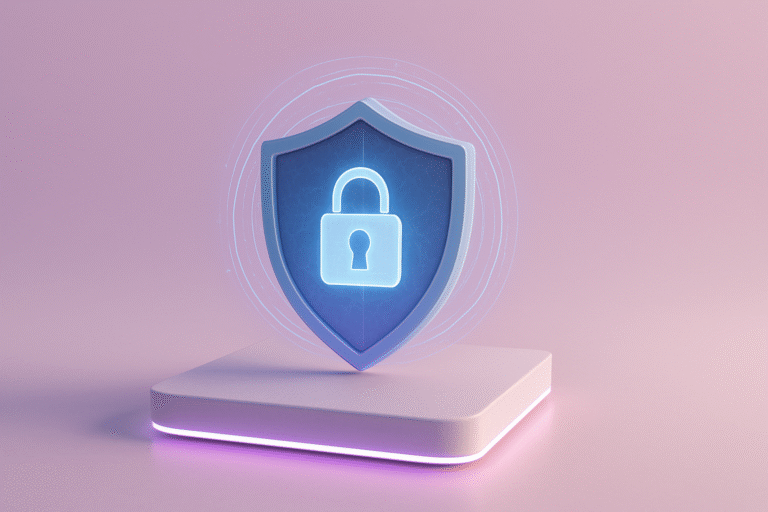There are many nuances within the concept of identity, but when we add decentralization and self-management to digital identity, there are a large number of elements in the equation that we must unravel in order to understand the importance and difficulty of implementing decentralized identity management.
Therefore, in today’s article, we will clarify some of these concepts, which we will continue to expand in future articles.
Unraveling the concept of identity
Since ancient Greece, the concept of identity has been one of the most complex problems in philosophy. From the famous nosce te ipsum (know yourself) written in the temple of Apollo to Descartes’ famous cogito ergo sum (I think, therefore I am), personal identity has been marked by the development of science, which for centuries has provided new challenges and opportunities for understanding this concept.
As we can see, talking about identity is not easy at all, and today it becomes even more complex with the development of AI, but in today’s article we will leave aside the more philosophical and existential part to focus on the part related to decentralized digital identity.
What do we mean by identity?
We could say that the concept of identity is defined by a set of characteristics that allow us to distinguish ourselves from others and give meaning to our sense of self.
Today, identity can refer to a human entity as well as to other non-human entities, such as organizations or authorities.
What is decentralized identity?
Decentralized Identity (DID) is an approach where individuals own and control their own identity data without relying on a central authority. It does this by using distributed registry technologies, such as blockchain, to create an ecosystem where identities are verifiable, secure, and private through their identifiers.
This model contrasts with traditional identity systems, which are typically centralized and controlled by governments or large corporations.
What are identifiers?
An identifier is a piece of information that pertains to a particular identity or identities. Common identifiers include:
- Name
- Date and place of birth
- Social security number/tax identification number
- Mobile phone number
- Digital identification credentials (email addresses, usernames, etc.)
Traditional identity management systems have historically relied on centralized intermediaries that issue, own, and control our identifiers and credentials. This model not only limits our control over our identity-related information, but also puts our privacy and security at risk.
Decentralized Identifiers (DIDs)
DIDs are different from traditional identifiers such as legal names or email addresses. They are not issued, managed, or controlled by centralized entities. Instead, decentralized identifiers are created and controlled by individuals and stored in distributed ledger technologies, the most popular being blockchain.
This makes them globally unique and cryptographically verifiable, as even if the issuer no longer exists, the holder can always prove the provenance and validity of the credential.
Attestations
An attestation, also known as a verifiable credential, is a statement made by one entity about another.
For example, a driver’s license issued by the Department of Motor Vehicles attests that you are legally authorized to drive. Attestations contain identifiers to reference an identity and make assertions about attributes associated with that ide
In the context of decentralized identity, attestations are tamper-proof and cryptographically verifiable. Each attestation issued by an entity is associated with its DID, allowing anyone to verify the validity of an attestation by verifying the issuer’s DID on the blockchain.
Types of Attestations
There are several approaches to issuing, storing, and verifying attestations in decentralized identity systems:
Off-chain attestations
One concern with storing on-chain attestations is that they may contain information that individuals wish to keep private. The public nature of some blockchains makes them unattractive for storing this type of information.
Using off-chain attestations, it is possible to issue verifiable credentials that users can keep off-chain in their digital wallets, but signed with the issuer’s DID, allowing for easy verification of off-chain attestations.
On-chain attestations
On-chain attestations, as opposed to off-chain attestations, are held in smart contracts. The smart contract, acting as a registry, can map an attestation to a decentralized identifier on the chain, ensuring that the information is easily verifiable, immutable, and accessible without relying on intermediaries.
For example, an educational institution could create on-chain attestations to certify that students have successfully completed their courses. Using a smart contract, this would include information such as the course name, date, or grades, in addition to the student’s decentralized identifier.
The organization would only need to digitally sign the attestation with its private key, ensuring that the information is authentic and verifiable.
Benefits of decentralized identity
- Individual control: Decentralized identity increases individual control over identity information. Individuals can manage their own identifiers and credentials without relying on third parties.
- Privacy and security: Decentralized identity solutions provide a trusted, privacy-protecting method for verifying and managing user identity. They use blockchain technology to establish trust between different parties and provide cryptographic guarantees.
- Portable: Users can store credentials and identifiers in a wallet and share them with any party of their choice, without being tied to the issuing organization’s database.
- Compatibility with new technologies: Decentralized identity works well with zero-knowledge technologies that allow individuals to prove they own or have done something without revealing specific details. This is particularly useful for applications such as voting.
- Anti-Sybil protection: Decentralized identity enables mechanisms to detect when an individual is impersonating multiple people to manipulate a system, increasing the integrity and security of processes.
Decentralized Identity use cases
- Universal logins: Replacing password-based logins with decentralized authentication improves user experience and increases security. Service providers can issue credentials that are stored in a wallet, allowing users to access platforms without remembering lengthy passwords.
- KYC authentication: Enterprises can authenticate user identities with verifiable credentials, reducing identity management costs and preventing the use of fraudulent documents.
- Voting and online communities: Decentralized identity improves the integrity of online voting processes and helps create online communities free of fake accounts, reducing the possibility of bots.
- Anti-Sybil protection: Grant applications and other applications vulnerable to Sybil attacks can benefit from decentralized identity, ensuring that each participant is truly human without revealing private information.
Conclusion
Decentralized identity represents a revolution in the way we manage our identity and privacy. By eliminating reliance on centralized intermediaries, this approach opens up new possibilities for authentication and identity verification in an increasingly digital world.
For example, the use of distributed ledger technologies, such as blockchain, can create unique and cryptographically secure identifiers that do not rely on central authorities and offer greater individual control, improved privacy and security, and greater compatibility with emerging technologies.
However, as these technologies develop, it is important to understand how they work and examine their vulnerabilities in order to implement effective and secure solutions.
Resources:
[1] Personal identity: a philosophical problem
[2] Ethereum: Decentralized identity
At Block&Capital, specialists in tech recruitment, we strive to create an environment where growth and success are within everyone’s reach. If you’re ready to take your career to the next level, we encourage you to join us.
Last posts





